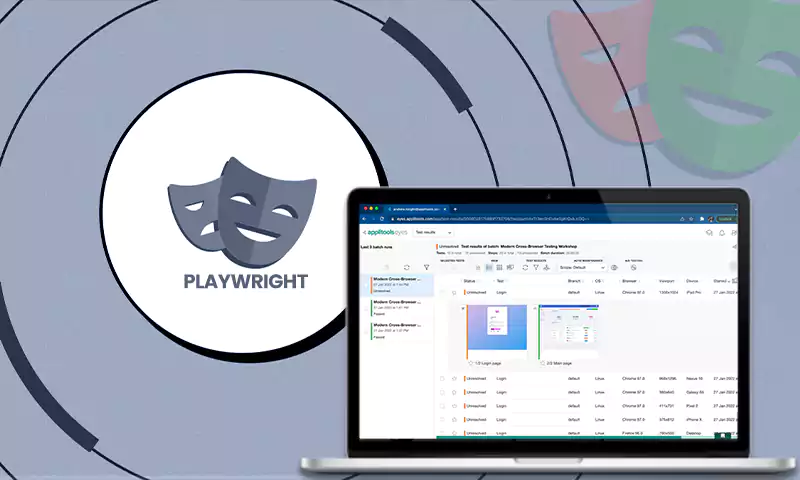The New Century – New Crimes: Internet Scammers Hunting Your Money
Internet scams are designed to steal money from people by special techniques developed to fool and rip them off. This article lists some of the most successful and well-known Ponzi schemes, advance-fee frauds, and other web crime tactics used to defraud and victimize innocent Internet users.
The History of Crime in the Last Century
Crime has been around since the beginning of time, but it has evolved over time. In the early days, people robbed stagecoaches and banks because there was very little law enforcement to stop them. As technology advanced, so did methods of committing crimes. By the end of the 19th century, credit card fraud was born. According to the website lookupinjnmate.org, jail time for credit card fraud can range from a few months to several years. In addition to jail time, people convicted of credit card fraud may also be required to pay fines, restitution to victims, and other penalties. They may also be subject to probation and other forms of supervised release.
The evolution of crime continued in earnest into the 21st century. The internet made it much easier for criminals to commit crimes and stay hidden at the same time. While fraud has been around since almost the beginning of commerce, online scams have grown dramatically in recent years.
There are many types of Internet crime you need to be aware of. Here are common ones and how to protect yourself:
Victim Impersonation
Scammers pretend to be someone you know and ask for money or personal details. To avoid being caught, they may change their contact information and use an email address or phone number similar to the person they are pretending to be.
Online Romance Scams
These scams are often linked with fake profiles on dating websites. A scammer may pretend to have a romantic interest in you and gain your affection, then ask for money or gifts. They may ask for small amounts at first, but once you’ve given them enough trust, they’ll ask for larger payments.
Phishing
This is a type of fraud where scammers try to trick you into giving them personal information like passwords or credit card numbers by posing as legitimate organizations in emails or text messages. These emails usually look like they’re from a bank, credit card company, or other trusted business. The message will try to scare you into clicking on a link that takes you to a fake website where your details can be stolen as soon as you enter them. Thus, make sure you know how cybersecurity for emails works.
Online Auction Fraud
Online auction fraud is when someone buys something from an online auction and pays for it with a fake money order or check or by sending you counterfeit cash. You send them the goods when you should be sending them back their money order or check or counterfeit cash instead.
Transformation of Crime in the New Century
In the 1990s, a number of factors converged to create the perfect environment for criminals. Economies were booming, and society was making the transition from analog to digital. As people relied more on technology and less on cash, the opportunity for fraud increased exponentially.
Cybercrime is where criminal activity is conducted through electronic means. It can be as simple as stealing a low-value item from a shop, or it can be as complex as infiltrating corporate networks to steal millions of dollars worth of data and intellectual property.
Crime has always been about opportunity, but in the twenty-first century, technology gave criminals an unprecedented amount of opportunities. You don’t need to buy a gun or develop a plan when you can mask your identity and conduct illegal activities through cyberspace.
Internet Influence on Crime
The internet has had a disproportionate impact on crime. It has made it easier for criminals to commit crimes, and it has also increased the opportunities for preventing and detecting crime.
The internet is a means for criminal enterprises to reach customers around the world with little fear of prosecution. It’s easy to hide a computer server in another country, and even if it gets shut down, the operators can easily set up another one.
The internet makes it easier for people to commit crimes, but it also makes it easier to detect them. Criminals are leaving more of an electronic trail than ever before, and police forces are increasing their investment in technology to track them down.
The New Instruments for Crimes
The new instruments for crimes like Kali Linux, Ophcrack, EnCase, and Data dumper are described below:
Kali Linux
It is an open-source operating system designed from the ground up as a drop-in replacement for the well-known BackTrack penetration testing Linux distribution. It is based on Debian and developed by Offensive Security.
Ophcrack
Ophcrack is a free Windows password cracker based on rainbow tables. It is one of the most efficient implementation of rainbow tables done by the inventors of the method. It has a Graphical User Interface and can run on multiple platforms.
EnCase
EnCase is a proprietary computer forensics software tool developed by Guidance Software (now OpenText). It is used by law enforcement, military, and corporate examiners to investigate what happened on a computer. It can analyze Microsoft Windows, Mac OS X, Linux, Solaris, and UNIX disk images in addition to logical and physical drives.
Data Dumper
Data dumpers are tools that can be used to extract data from various storage media such as hard drives, floppy disks, etc. They can be hardware-based or software-based, depending on the functionality they offer.
The New Types of Crime – Cybercrime
Scammers
Cybercrime is becoming a major threat to the world. Every day, more and more people are learning about how easy it can be to take advantage of consumers.
On a global scale, cybercrime is faster than ever. New techniques, like data theft from botnets and cyberattacks that disable your computer’s security settings, are making it easier than ever for scammers to steal your information and use it to commit crimes against you.
But other forms of cybercrime don’t involve hacking or even using a computer. The Internet’s anonymity has made it easier than ever for bad actors to hide their identities, which means they can commit their crimes with impunity. Fraud scams are an example of this. These scammers do not fear arrest since it can be hard to track and arrest them.
Provision of low-Quality Educational Services
Cybercriminals have flooded the internet with thousands of websites promising to offer quality courses in exchange for some amount of money. Such institutions are usually not affiliated with any legitimate institution hence the quality of education being offered cannot be verified. Once money has been paid, there is no refund for poor or no service offered.
Sale of Low-Quality Equipment
This is one of the most frustrating cyber crimes because it is difficult to detect and prevent, yet it can be quite costly. For example, if you purchased an expensive piece of hardware online only to have a cheap knockoff delivered to your door, you would be extremely annoyed.
Sale of Non-Original Clothing
The sale of non-original clothing is a growing cybercrime, and it has been reported several times. It involves the fraudulent sale of fake products that look like real designer clothes and accessories but are not originals. These fakes have made a big impact internationally in the last few years, particularly in North America and Western Europe.
Fake or Substandard Medicines
Unfortunately, the sale of not often fake or substandard medicines is common. Often people buy hormones for a gym or wellness like growth hormone. Their use may increase lean body mass and muscle strength.
Buying unprescribed HGH from amazon and eBay may be risky. You never know what you get there, and any non-certified drug can be life-threatening, especially if you don’t know what exactly is included and how much.
Cyber Extortion
Cyber Extortion is a crime involving an attack or threat of attack on the Internet, using e-mail, websites, blogs, or instant messaging to solicit money or other goods. The extortionist may claim to have knowledge of the victim’s password and other personal information.
They may also claim to have access to the victim’s private files or computer systems and threaten to distribute them unless they receive payment. In some cases, the attacker may actually have some of the victim’s information or be able to compromise the victim’s systems in a limited way.
Some forms of cyber extortion involve denial-of-service attacks on Web sites and transmission of viruses to cause damage to specific computers.
Theft Personal Data
The theft of personal data by criminals, or cybercriminals, is a growing problem. It’s often carried out by people who want to commit identity theft or fraud.
If your personal details have been stolen, this could be used to steal your money or take out a loan in your name. You should monitor bank statements carefully and contact your bank as soon as possible if you think you’ve been a victim of identity theft.
Cyber Espionage
Cyber Espionage is a crime that uses computers or related technology to gain access to sensitive or classified information. Targeted information can be in the form of emails, documents, or other files. The information can be collected from an individual, a group, or a government and used for personal gain, economic gain, political gain, or military advantage. Cyberespionage often involves unauthorized access to computer networks using software tools and techniques commonly referred to as malware. Cyber Espionage is a very serious threat; this is because it can have devastating effects on:
- An individual – for example, gaining access to personal emails and photos
- A company – for example, stealing trade secrets
- A government – for example, gaining access to classified military information
The new field of Cyber-crime is not just limited to the common Cyber theft that you hear about all the time. Cybercrime is more than just stealing your personal information such as Bank numbers and Credit card details. The internet has opened up a whole new arena for criminals, and almost every type of crime these days has a digital counterpart. So be aware if you think it can’t happen to you. Stay safe online by practicing good cyber security.
Share















